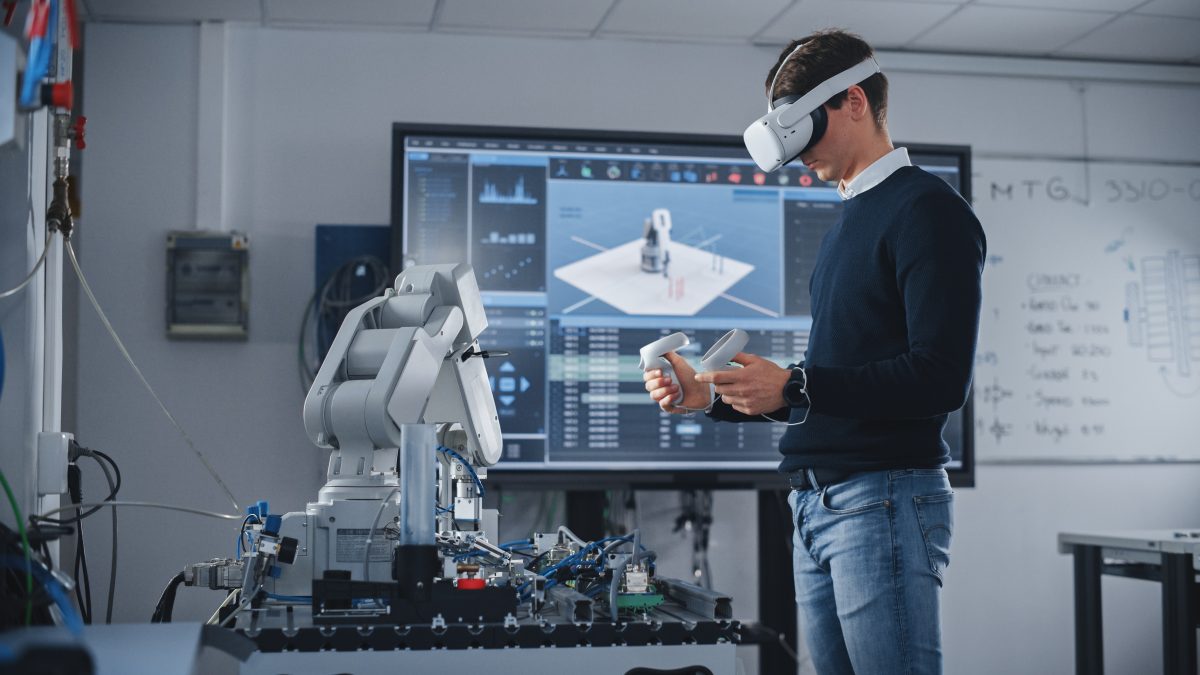Forecasts indicate that within the next year 42% of key competencies will change. It’s mean that every second worker will need to undergo a requalification process. This process becomes even more significant from the perspective of 2030, when over a billion workers worldwide will have to learn new ways of performing their work. Therefore, it’s already time to recognize and develop the competencies of the future.
To anticipate upcoming changes in the job market and the competencies that will be desired in the near future, it’s worth first looking at current trends. AI, flexibility and ease in acquiring knowledge, the need for a strong leader, and what else will condition future competencies?
New Technologies and Job Positions
The most significant market trend is the rapid development of artificial intelligence. It affects daily work and creates a demand for specific digital skills of employees. Modern technology can replace low-level workers, but it enhances the importance of experts and high-level employees, specialized in a specific field. This also opens new opportunities, leading to the creation of previously non-existent positions related to tools like Chat GPT.
Development Above All
Due to rapid changes and the need to update knowledge and competencies. Development is one of the key current trends. Investing in training, courses and coaching sessions has become the foundation that companies offer their employees. Upskilling and reskilling, i.e., enhancing the qualifications of employees and expanding them with new topics, arise from the need for flexibility from employees and ease of entering a new role in the company’s structures according to the organization’s current demand.
Leader, Not Just a Boss
Another growing trend is the transformation of a manager into a leader. Team managers are now required to be true leaders. It’s crucial to seek individual development paths for employees. It’s also important to create a personalized approach for each person employed in the company, and to build a strong team based on the competencies of all employees. Education and development towards leadership are necessary to manage the team wisely and generate the best possible work outcomes.
Feedback and Implementing Changes
Regular employee feedback and evaluation of their work are becoming more common practices in organizations. The ability to efficiently analyze work from the superiors’ side, and the easy implementation of discussed changes from the employed person, are becoming very important. The goal of periodic employee evaluations and subsequent evaluative discussions is to quickly identify what works and what doesn’t and to immediately react, leading to system unblocking. All this in the name of better efficiency and job satisfaction.
New Forms of Work
The emergence of new forms of work – hybrid, remote, with flexible hours, and an increasing number of freelance collaborations – cannot be overlooked. This change was triggered by the pandemic but is also dictated by a more flexible approach to work from employees. Another factor was a strong sense of the need for Work-Life Balance in the performance of the entering Generation Z.
Looking to the Future – 7 Future Competencies
How do all these phenomena and directions in which the job market is developing affect the needs regarding employees’ competencies? Here are 7 skills that, in our opinion, will lead the way in the future:
- Digital Skills – This is not just the ability to use technology. It is also understanding its impact on your work and business. It includes confident use of devices, software, and applications.
- Data Analysis Skills — Data is an exceptionally valuable resource. Therefore, the ability to understand and effectively use data is crucial today. This means accessing appropriate data, interpreting it, and communicating conclusions based on it.
- Active Learning — This competency involves actively seeking knowledge through various methods, such as reading, online courses, discussions and experimenting. This is key in a world where knowledge quickly becomes outdated.
- Critical Thinking — In the era of widespread fake news, critical thinking is more important than ever. It involves analyzing situations based on evidence rather than biases, helping to distinguish truth from falsehood in various contexts.
- Emotional Intelligence — This is the ability to understand and manage one’s emotions and recognize their impact on others. Empathy – the ability to see the world from another person’s perspective – is a key element of emotional intelligence. This is especially important in the context of teamwork.
- Creativity — As routine tasks are increasingly automated, creativity becomes key. It’s about transforming ideas and imaginations into reality, thinking outside the box, innovatively solving problems, and implementing ideas.
- Resilience, Stress Tolerance, Flexibility — In an era of constant change, mental resilience, stress tolerance and flexibility are essential today. They help employees cope with challenges and avoid occupational burnout.
These competencies will form the foundation for success in the changing world of work. The world where technology, adaptation, and soft skills intersect, creating a new dimension of professional efficiency.
Author: Justyna Bakalarska-Stankiewicz
